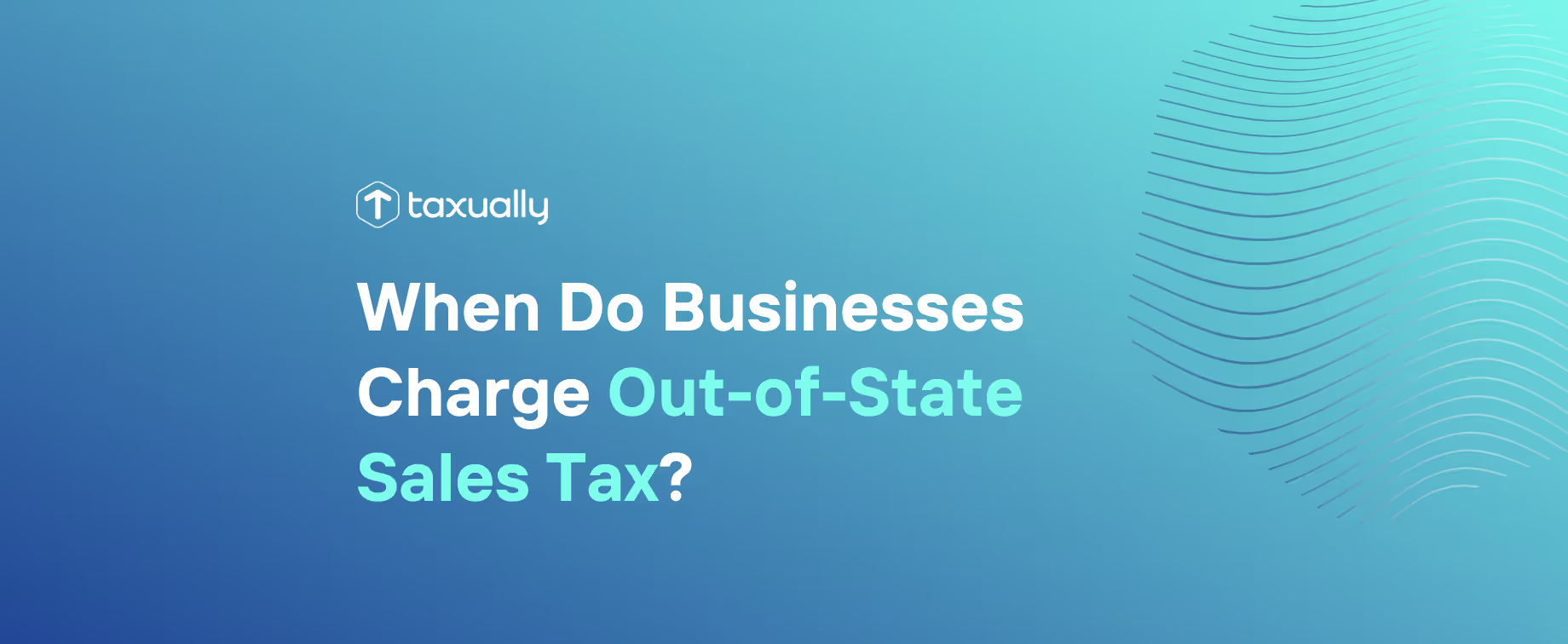Key takeaways
- Nexus triggers sales tax obligations: You must collect out-of-state sales tax if your business has physical, economic, click-through, or marketplace nexus in a given state.
- Marketplace platforms often collect for you: Facilitators like Amazon or Etsy usually handle tax collection, but sales through these platforms still count toward your nexus thresholds.
- Sales tax laws vary by state: Rates, taxable items, and thresholds differ, so monitor your sales activity and use tax automation tools to stay compliant across jurisdictions.
For years, businesses only had to worry about charging sales tax in states where they had a physical presence—a storefront, warehouse, or employee. But the landmark 2018 U.S. Supreme Court decision in South Dakota v. Wayfair changed the game. It allowed states to require out-of-state sellers to collect sales tax based on economic activity alone, even if they have no physical presence in the state. Today, selling across state lines—especially online—comes with far more complex obligations.
So, when do businesses need to charge sales tax out of state? Let’s break down how it works and when out-of-state sales tax applies.

The basics of sales and use tax
Nearly every U.S. state imposes a state sales tax on the retail sale of taxable items. As a seller, your responsibilities may include:
- Collecting sales tax from customers
- Remitting sales tax to the appropriate tax authority
- Filing a sales and use tax return
If you don’t charge the tax, your customer may still owe use tax—a companion tax on taxable items purchased out of state but used, stored, or consumed in their home state. While this tax falls on the buyer, states increasingly hold sellers responsible, especially if nexus applies.
Nexus and out-of-state sales tax
You are only required to collect sales tax out of state if you have nexus in that state—a legal connection between your business and the taxing jurisdiction.
Types of nexus:
- Physical presence nexus: Includes offices, warehouses, employees, or even attending trade shows in a state.
- Economic nexus: Introduced by the 2018 Wayfair decision, this means you can have nexus based on sales volume or transaction count, even without any physical footprint.
- Click-through nexus: Triggered when out-of-state sellers use in-state affiliates or referral links.
- Marketplace nexus: Many states require marketplace facilitators like Amazon or Etsy to collect tax on behalf of their sellers.
When does out-of-state sales tax apply?
Your business must charge sales tax out of state when you meet one or more of the following conditions:
- You have a physical presence in the customer’s state
- You exceed economic nexus thresholds in the state (e.g., $100,000 in sales or 200+ transactions per year)
- You sell taxable goods or services to customers in states that tax them
- You sell through a marketplace facilitator required to collect tax
Once you meet the threshold, you’re required to:
- Register for a sales tax permit in that state
- Collect and remit sales tax
- File regular sales tax returns based on that state's filing frequency
What are the state economic nexus thresholds?
Economic nexus thresholds determine when your business must collect sales tax in a state, even without physical presence. These thresholds are based on gross sales revenue, transaction count, or both, and they vary from state to state. Once your business exceeds a state’s threshold within a calendar year, you must register, collect, and remit sales tax there.
For more information on the individual thresholds by state and the sales that are included, read our Economic Nexus by State guide.

How does sales tax work when selling through marketplace facilitators?
If you sell through a marketplace facilitator—like Amazon, Etsy, Walmart Marketplace, or eBay—sales tax collection often isn’t your responsibility. Most states have marketplace facilitator laws that require these platforms to collect and remit sales tax on your behalf for orders shipped to customers in their states.
This means:
- You generally don’t need to collect sales tax on sales made through these platforms.
- However, you may still need to register for a sales tax permit in some states if you also make direct sales (e.g., through your own website) or have other types of nexus.
- Marketplace sales still count toward economic nexus thresholds, so they can trigger tax obligations even if you’re not the one collecting the tax.
Always check each state’s rules and your marketplace’s tax policy to ensure compliance.
Do sales tax rates vary?
Yes. Sales tax rates vary not only between states but also within them. Many states allow local sales tax to be added on top of the state sales tax, which means the final rate can differ by city, county, or district.
For example:
- Tennessee: 7% state rate + up to 2.75% local rate
- California: 7.25% base rate + local district taxes (can exceed 10%)
- Texas: 6.25% state rate + up to 2% local rate
Additionally:
- Some states tax shipping and handling, while others do not.
- Certain taxable items (e.g., groceries, clothing) may be exempt or taxed at a reduced rate depending on the jurisdiction.
- Digital goods and SaaS may or may not be taxable based on the state.
Tips for online retailers and out-of-state sellers
Selling across state lines? Here’s how to stay on top of your sales tax obligations:
- Track economic nexus: Monitor revenue and transaction volume in every state.
- Understand taxability: Know which of your products or services are taxable in each jurisdiction.
- Automate tax compliance: Use sales tax software to calculate tax rates, apply them at checkout, and handle sales tax returns.
- Register proactively: Don’t wait until you’re audited—register in states where nexus is established.
- Stay current: Sales tax laws change often; use trusted tools or services to stay compliant.
- Remit sales tax and file on time to avoid interest, penalties, and revoked permits.
Summary
The days of only charging sales tax in your home state are long gone. Thanks to the Wayfair decision and the rise of economic nexus, even small businesses and online retailers may be required to charge out-of-state sales tax.
To stay compliant:
- Know where your business has nexus
- Understand when sales and use tax applies
- Use tools and resources to simplify sales tax collection, remittance, and filing
As your business grows across state lines, staying informed is key to avoiding costly mistakes and keeping your operations running smoothly.
Looking for the best automated tax compliance solution for your business?
Taxually is an all-in-one VAT and sales tax automation platform designed to simplify compliance, reduce risk, and scale with your business. From registration to filing, our software automates every step—across the U.S., EU, and beyond.
Book a free call with our tax experts to see how Taxually can streamline your tax operations and help you stay fully compliant in every market.
Frequently asked questions
New Year's Day - 1/1/2024Memorial Day - 5/27/20244th of July - 7/4/2024Labor Day - 9/2/2024Thanksgiving Day - 11/28/2024Day after Thanksgiving - 11/29/2024Christmas Eve - 12/24/2024Christmas Day - 12/25/2024
When do I need to start collecting sales tax in another state?
You must collect sales tax in a state once you establish nexus—which could be physical (like an office or employee), economic (e.g., $100K in sales), click-through, or through marketplace sales.
Do I need to worry about sales tax if I only sell through platforms like Amazon or Etsy?
Marketplace facilitators usually collect and remit sales tax on your behalf, but your sales still count toward economic nexus thresholds. You may still need to register in states where you also make direct sales.
Are sales tax rates the same everywhere?
No. Sales tax rates vary by state, and even by city or county. Some states also tax shipping, digital goods, or certain services differently, so it’s important to check local rules.



















